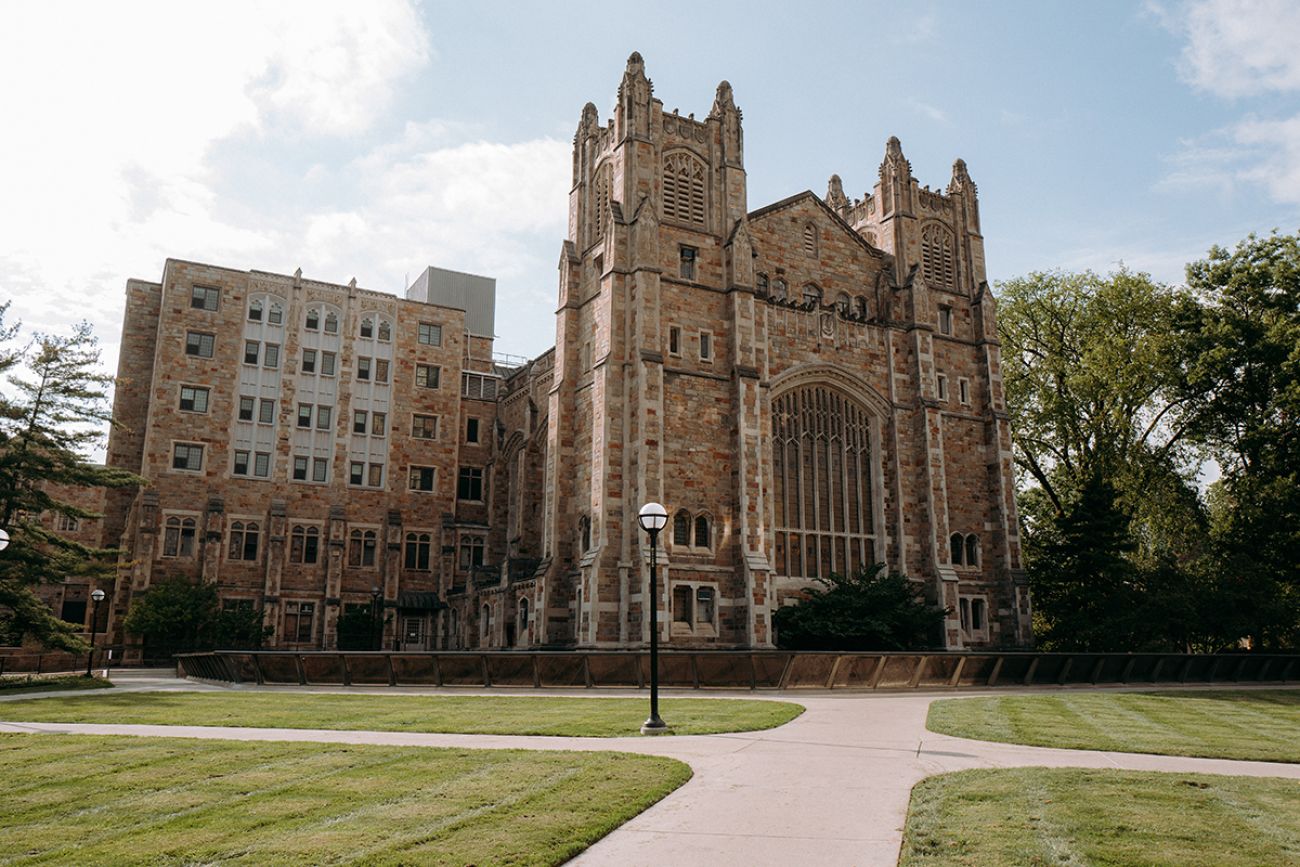Records: Feds use arrests, not convictions, to revoke Michigan student visas

- The Trump administration is using police run-ins, even without charges as reasons to revoke student visas
- At least 70 international students in Michigan and 800 nationally face uncertain futures because of the revocations
- A Michigan lawsuit attempting to halt the revocations is in federal court
Four Michigan college students were marked for possible deportation by the Trump administration because of run-ins with law enforcement, despite a lack of evidence that they were ever charged or convicted of crimes.
Court documents filed this month by federal officials cite the arrests as justification for revoking student visas. At least 70 foreign students enrolled at Michigan universities are among the 1,100 nationwide who face deportation.
Government officials had not given a reason for the revocations. Attorneys for the students say the filings confirm suspicions the Trump administration is using arrest records, even when there is no indication of charges being filed, as a reason for deportation.
The ACLU of Michigan filed a lawsuit this month on behalf of four students — two studying at the University of Michigan and two at Wayne State University — who had their legal status as students revoked. The lawsuit contended that the Trump administration had failed to legally justify its actions. In a filing in the case April 14, the federal government pointed to arrest records as the reason for a change in their status.
Neither the government nor record checks by Bridge Michigan indicate that any of the four were convicted of crimes.
Related:
- DEI rollbacks hit campus support systems for students of color at U-M
- 70 international students face deportation in Michigan. Trump won't say why
- Trump administration strips legal residency of international students at CMU, U-M
In one case, a charge of assault was dismissed; in two cases, the federal government says the disposition of assault charges was “unknown.” In both of those cases, Bridge was unable to find any record of criminal court cases against the students.
A fourth student’s only run-in was with the US Customs and Border Protection in 2022, when he was denied entry on a visitor’s visa. According to the ACLU, the student had hoped to visit his girlfriend in the US for a full semester — a length of time deemed too long for a visitor’s visa.
“None of our clients — none — have even been charged with, let alone convicted of, any crime,” ACLU staff attorney Phil Mayor told Bridge on Wednesday.
“Some, but not all, had encounters with police that did not result in charges, as we acknowledged in our complaint. Those encounters provided no lawful basis whatsoever to terminate their student records and status as the government has done.”
The US Secretary of State has discretionary authority to revoke a nonimmigrant visa at any time. Once a visa is revoked, the former visa-holder can be subject to deportation proceedings.
Detroit-based US District Judge Stephen Murphy III denied a request for a temporary restraining order to stop the government from revoking student visas, after attorneys representing the US Department of Justice said the government has not initiated deportation proceedings against the students.
A hearing on a request for a preliminary injunction against the revocations is set for May 19.
Nationwide, students who have had visas revoked have had some success in court, with judges in New Hampshire, Minnesota, Oregon, Washington and Wisconsin ordering temporary restraining orders to restore their legal status.
While students affected by the revocations represent just a small fraction of the 38,123 international students enrolled in Michigan colleges and universities, advocates said they fear a chilling effect. Both colleges and companies rely heavily on international students and immigrant workers.
“It's a loss for students, it's a loss for institutions. It's a loss for the Michigan economy,” Dan Hurley, chief executive officer of the Michigan Association of State Universities, told Bridge earlier this month.
Of the students Michigan university officials identified by nationality to Bridge, most were from China or countries in South Asia, Africa or the Middle East.
The number of students facing revocation and possible deportation include:
- 22 at University of Michigan,
- 12 at Michigan State University,
- 12 at Wayne State University
- 6 at U-M Dearborn
- 6 at Western Michigan University
- 3 at U-M Flint
- 2 at Eastern Michigan University
- 4 at Grand Valley State University
- 4 at Oakland University
- 4 at Saginaw Valley State University
- “Several” at Central Michigan University
Michigan Education Watch
Michigan Education Watch is made possible by generous financial support from:
Subscribe to Michigan Education Watch
See what new members are saying about why they donated to Bridge Michigan:
- “In order for this information to be accurate and unbiased it must be underwritten by its readers, not by special interests.” - Larry S.
- “Not many other media sources report on the topics Bridge does.” - Susan B.
- “Your journalism is outstanding and rare these days.” - Mark S.
If you want to ensure the future of nonpartisan, nonprofit Michigan journalism, please become a member today. You, too, will be asked why you donated and maybe we'll feature your quote next time!






